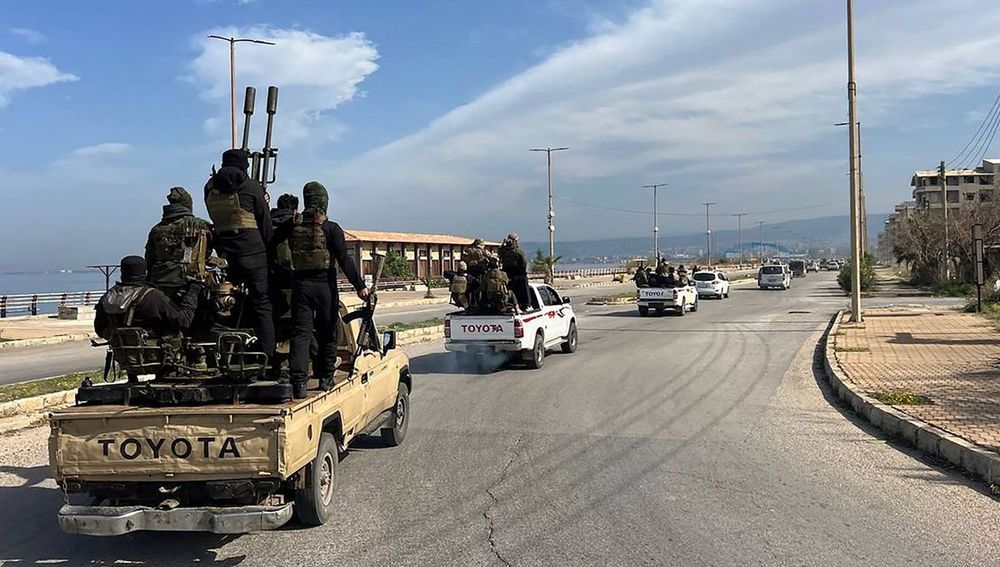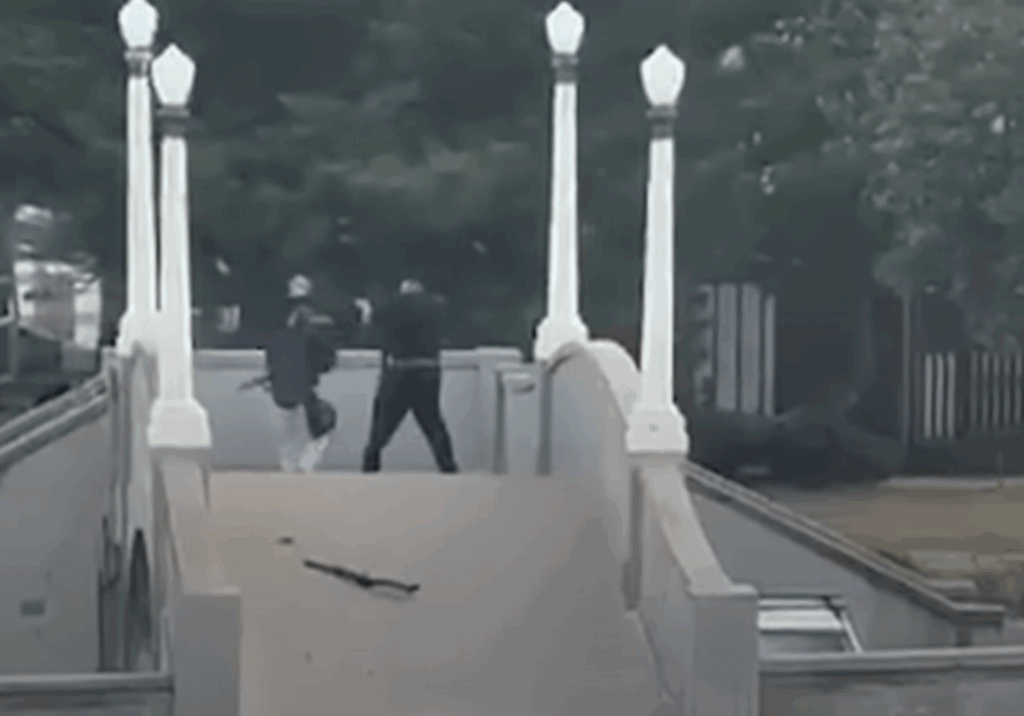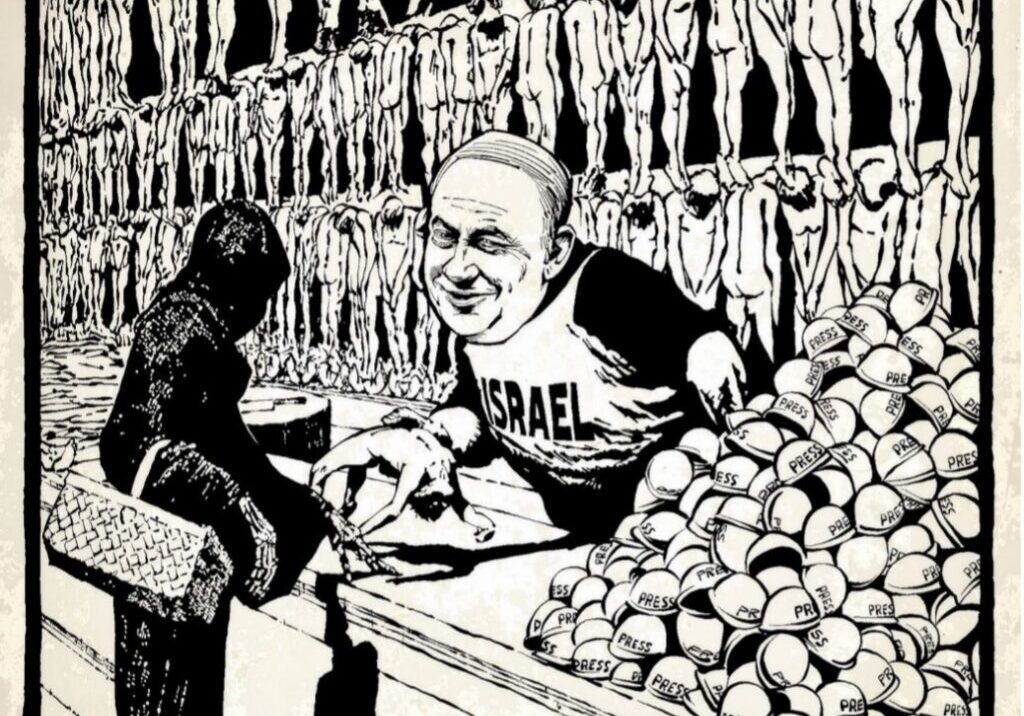Australia/Israel Review
Minorities in the shadow of Syria’s new Islamist regime
Mar 31, 2025 | Mendi Safadi

After 14 years of civil war in Syria, in December last year, the Assad regime fell, and is now being replaced by a regime dominated by formerly al-Qaeda-linked Sunni Islamists. This event plunged the Middle East into confusion and high alert.
Even new Syrian President Ahmed al-Sharaa (aka Abu Muhammad al-Julani, his nom de guerre) did not expect the road to Damascus to be so smooth, with almost no resistance, allowing him to take over the country within days.
Although Israel was not directly involved in these events, the timing of the attack was not coincidental. It was significantly influenced by events stemming from the war triggered by the October 7 massacre. Over recent months, Hay’at Tahrir a-Sham (HTS) – a former affiliate of al-Qaeda that had control of most of Syria’s Idlib province – planned the attack under the guidance and close supervision of Turkish intelligence, redeploying forces along the borders of Idlib province and preparing militarily for the assault.
The element of surprise played a crucial role. The attack commenced while the “Axis of Resistance”, led by Iran, was critically weak. Hezbollah and other Shi’ite militias suffered heavy losses due to prolonged fighting with Israel, especially after Israel’s Operation Northern Arrows in Lebanon in September 2024. The once-widespread presence of “Axis of Resistance” forces in Aleppo and other areas in Syria diminished significantly as some militants were redeployed to Lebanon, and many were eliminated by Israeli strikes. The rebels, in coordination with Turkish security and political decision-makers, recognised an opportunity and received the Turkish green light to launch an offensive.
Throughout most of the Syrian civil war, Islamist rebel factions received military, economic and logistical support from Ankara. Turkey has two primary interests in Syria: first, to weaken the Syrian branch of the Kurdistan Workers Party (PKK) and reduce Kurdish autonomous control in northeastern Syria, ideally to the point of ethnically cleansing the Kurds away from the border region, if possible. Second, to return a significant portion of the 3.5 million Syrian refugees who fled to Turkey due to the war.
Turkey’s support for the Syrian rebels, particularly jihadist factions, aligns with Erdogan’s broader goal of reinstating an Islamic, possibly neo-Ottoman-style dominance in the Middle East.
The Druze
One critical factor that HTS and its Turkish masters did not account for was Syria’s Druze minority. The Druze community’s resilience and courage in defending their mountain redoubts reminded HTS of their past difficult confrontations with Kurdish fighters. Additionally, an Israeli ultimatum issued in February, warning the new regime against harming the Druze minority, played a substantive role in limiting any regime move to extend direct control over the Druze majority region of southern Syria. Israel even conducted pre-emptive strikes on military positions and stockpiles of heavy weapons that could threaten the Druze.
Israel appears to have several motivations for openly declaring its protection of Syria’s Druze – based on the statements by the Prime Minister, Defence Minister, Foreign Minister and senior military officials. The primary security goal is the demilitarisation of southern Syria to remove any terrorist threat near Israel’s borders. However, beyond security, there is the historic alliance between Jews and Druze, and the two religions are connected via the biblical figures of Jethro (Shu’ayb) [whom the Druze regard as their most important prophet] and Moses. This continues today via the strong bond between Druze and Jews in Israel – the most solid interethnic alliance in the region.
The Druze leadership in Israel closely monitors developments in Druze-populated areas of Syria. They are actively engaged with Israel’s Government and military to ensure the safety of their brethren in Syria and to facilitate the delivery of humanitarian and medical aid into Druze regions. This is especially crucial given that the new regime in Damascus has significantly restricted the supply of basic goods to Druze areas – leading to unprecedented unemployment – and even cut off pensions and salaries that were paid under Assad’s rule. Furthermore, the new regime shut down two key factories in a-Suwayda, the largest city in the majority Druze region of southern Syria, both of which employed many Druze residents.
The primary dispute between the new HTS-dominated regime and the Druze revolves around governance. The Druze demand a secular, decentralised government, in a federal or autonomous system where all regions remain under the Syrian state but with self-governance. However, the new government, supported by Turkey, insists on a centralised Islamic regime, mostly guided by Islamic Sharia law. This became even more concerning for minorities after the appointment of new ministers and officials – all of whom are loyalists of Jabhat a-Nusra, the original name of HTS, with some not even being Syrian. Some hail from Chechnya, Uzbekistan, Egypt and other countries, having come to Syria for jihad and gradually rising through the ranks of HTS before now assuming key positions in the new Syrian government.
The Syrian Druze militias refused to allow HTS forces to seize the Jabal a-Druze (“Mountain of the Druze”) region and have rejected demands to disarm, noting that there is still no legitimate national government, constitution or army in place. Their decision proved correct, especially after what transpired in Homs, where the Alawites surrendered their weapons, only to then face retribution for being part of Assad’s sect.
The Druze in Israel serve as a stronghold and a significant pressure factor to ensure protection for their community in Syria. The spiritual leader of the Israeli Druze, Sheikh Muwafaq Tarif, has been holding meetings with Israeli government officials as well as key figures in the US, Russia and Europe for this purpose. I have also been actively engaged, both locally and internationally, along with other public figures.
The Alawites: Test case for minority rights
Before granting international recognition to the new Government in Syria, it is important to examine the actual conduct of the regime and its agents in minority areas, not merely the statements of its leaders. On the ground, the new Government is gradually imposing Sharia law, and a policy that some argue could lead to ethnic cleansing of non-Sunni Muslim minorities.
The most threatened minority in Syria today is the Alawites, to which ousted President Bashar al-Assad belongs. Although more than 75% of the previous Syrian regime was from the Sunni majority, the prevailing opinion among Syrians is that it was essentially an Alawite regime. Moreover, the Alawite minority is blamed for the crimes committed by the ousted regime against the Syrian people over the past 14 years, during which more than half a million Syrians were killed, and nearly ten million Syrians were forced to seek refuge in neighbouring countries.
On March 6, a brutal attack occured in which (according to the Syrian Observatory for Human Rights) more than 1,383 Alawite were killed, most of them reportedly unarmed, after clashes broke out between HTS groups and forces affiliated with the former regime.
The origins of this latest escalation can be traced to when al-Sharaa announced a settlement with former soldiers of the former Assad regime’s army: anyone who did not commit a crime against the people would be allowed to lay down their arms and return home unmolested.
Sunni soldiers overwhelmingly received settlement approvals and were released to their homes. However, up to 8,000 Alawite soldiers who fought ISIS went to the settlement points and were arrested and imprisoned, even though they had played no part in the crimes against innocent people. After that, weapons collection began in minority areas, and the Alawites mostly responded to the call and handed over their arms.
Tensions then erupted in a largely Alawite village in rural Latakia following the arrest by security forces of a 95-year-old man who, according to witnesses, was a junior civil servant with no influence on what was happening in the country during Bashar al-Assad’s reign. Rumours also spread about systematic executions of young men and boys in front of their mothers by regime forces. In response, Alawite men tried to organise to defend themselves – and their clashes with HTS-affiliated forces fuelled acts of murder by the latter. [Ed. Note: It should be acknowledged that there are also reports of Alawite attacks on civilians – including Alawite civilians viewed as “traitors”]
On Wednesday, March 12, the Syrian Observatory for Human Rights reported “field executions” of civilians, especially Alawites. Many were killed inside their homes or in the fields, according to the centre’s director, Rami Abdel Rahman. He said the people were killed in “executions by the security forces and their affiliated groups” and noted that the death toll may still rise.
In an attempt to contain the situation, al-Sharaa announced the establishment of an investigative committee “to uncover the reasons and circumstances that led to these events, investigate violations against civilians, and identify those responsible.” Yet, ironically, al-Sharaa himself described the Alawites in a speech during the clashes as loyal to Assad.
The authorities later announced the arrest of at least seven people, who they said had committed “violations” against civilians on the Syrian coast. They were referred to the relevant military courts. However, no report on said investigation has been published since, and there is currently no tangible evidence that they were even detained. Needless to say, few Syrians believe the story presented by the regime, and videos filmed by soldiers in the regime’s forces appear to document horrific crimes systematically committed on a wide scale.
The clear lesson is that, at least at this stage, minorities in Syria cannot be protected without significant international intervention.
Mendi Safadi, head of the Safadi Centre for International Diplomacy, Research, Human Rights and Public Relations, is an Israeli Druze lecturer on Islamic affairs, terrorism, and the Middle East. Previously, he was Chief of Staff in the office of Israel’s Deputy Minister for Development of the Negev and Galilee and Regional Cooperation.
Tags: Islamic Extremism, Syria






